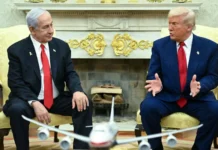Hong Kong is seizing an unexpected opportunity to attract global academic talent following a controversial move by the United States to block Harvard University from admitting foreign nationals.
The Trump administration’s decision, announced Thursday and immediately challenged in court by Harvard, has caused widespread uncertainty for thousands of international students and put a lucrative education pipeline at risk. Though a U.S. judge temporarily halted the measure on Friday, the policy shift has already triggered international concern and prompted swift action from other academic hubs.
Hong Kong’s Education Secretary Christine Choi responded promptly, calling on local universities to welcome “outstanding students from all over the world,” particularly those caught in the fallout from the U.S. decision. In a public statement, Choi emphasized the city’s readiness to accommodate displaced students by easing restrictions on international enrollment and encouraging institutions to adopt facilitation measures.
“The Education Bureau has appealed to all universities in Hong Kong to provide support for eligible students affected by the United States’ student admission policy,” she said.
Among the first to act was the Hong Kong University of Science and Technology (HKUST), which on Friday issued an open invitation to international students enrolled at Harvard or holding offers to study there. HKUST, currently ranked 105th globally by U.S. News and World Report, said it would provide “unconditional offers, streamlined admission procedures, and academic support” to help affected students transition smoothly.
“HKUST is extending this opportunity to ensure talented students can pursue their educational goals without disruption,” the university said in a statement.
The policy battle in the U.S. marks a new escalation in President Donald Trump’s ongoing conflict with Harvard, which he has accused of harboring anti-Semitic sentiments and promoting “woke” ideology. Homeland Security Secretary Kristi Noem claimed the administration’s move was aimed at holding the university accountable for “fostering violence” and alleged ties to the Chinese Communist Party.
China’s government quickly condemned the decision, denouncing it as a politicization of education and warning that it would damage the United States’ international standing.
Harvard, ranked number one globally, currently hosts over 1,300 Chinese students, representing a significant portion of its international population. With hundreds of thousands more Chinese nationals studying across the U.S., the broader implications of the Trump administration’s stance could reshape international education flows.
Hong Kong, already home to several globally ranked institutions, appears poised to capitalize on the turmoil, positioning itself as a safe and competitive destination for displaced talent and aspiring scholars worldwide.
Written By Rodney Mbua



















